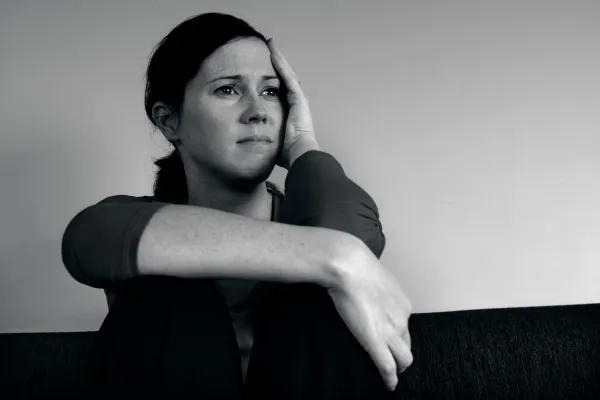
CONTACT

From The Blog
Some of my recent blogs full of information to help you live a healthier happier life

Depression During Menopause
The topic in this article is about depression and how it affects menopause. Depression is a real illness, just like heart disease or cancer, and it’s probably more common than you think, especially during the menopausal transition. According to the World Health Organisation (WHO) depression is a common illness worldwide, with an estimated 3.8% of the population affected, including 5.0% among adults and 5.7% amount adults older than 60 years old.
So what are the symptoms? These include, emptiness, hopelessness, decreased energy or fatigue, loss of interest in activities that you enjoy and a persistent sad or anxious mood that lasts for at least two weeks.
Feelings of depression does not mean you are weak, imperfect or at fault for how you feel. Experts say depression is caused by a combination of genetic, biological, environmental, and psychological factors, this may include a family history of depression, experiencing traumatic or stressful events, going through major life changes, such as menopause.
In addition to changes in hormone levels and the rapid drop in estrogen, discomfort from hot flashes, poor sleep, negative feelings of the idea of aging, upsetting life events, such as divorce, death of a spouse and unemployment, increase the odds for depression, while strong social support during the menopause transition helps to decrease depression.
Depression can interfere with your relationships and with normal daily activities like working, eating, and sleeping. It may also be hard to maintain lifestyle habits that support overall health, including eating well, getting regular exercise, not smoking, and avoiding excessive alcohol intake.
Other practical things that may also help you;
Keep a diary
This can help you identify what is a menopausal symptom and what is more likely to be a symptom of depression.
Take time out
Do this to have the emotional energy to do other things you need to do.
Get some quality rest if possible
Fatigue can make you prone to anxiety and low mood.
Get moving
Exercise is a mood buster and great for your health. Go for a 30 minute walk.
Self-care
A yoga session, a walk with a friend, making time to speak with a friend, sitting in the park or a beach, a movie, a relaxing bubble bath, facial or manicure, or making time to do whatever you want to do.
Practice Meditation
Meditation stimulates areas of the nervous system related to positive emotions. It increases the secretion of serotonin and endorphins.
Depression is treatable. Consult your doctor or health practitioner to rule out the possibility that your feelings are the result of medications you are taking or a medical condition.
MAKE MEAL PLANNING EASY ...
5 Day Meal Preparation Plan
A complete 5 day meal plan + recipes to show you how to plan and prepare all your food for a work week in just a few hours!
Shop once, cook once and eat clean for 5 days.

Customer Reviews
My clients gets results! Click here for more reviews...
My consultation with Emma was very insightful. I have Type 2 Diabetes and the guidance I received from Emma was excellent. She helped me prioritise the important aspects of diet and lifestyle. The food groups that will help me manage my glucose levels. She also helped me search for diabetes friendly recipes. I found Emma to be very kind and supportive. She is extremely knowledgeable and can guide you in your health and healing journey.
Sabarna Mukherjee

I recently attended a hydration event with Emma and it was super educational. I learnt so much! Emma really knows her stuff all things nutrition and health. I highly recommend Emma to anyone looking for help with meal planning and nutritional advice.
Erin Halcroft

Emma is a wonderful supportive person who cares for her clients. I lost 20 kilos and have so much more energy, I have never felt better. She is passionate to help women have long term health.
Tessa Jetson

Talking about health, weight and nutrition can feel a tad bit sensitive but not with Emma. Emma made me feel extremely comfortable during our consultation session. She listened to me and didn't make me feel intimated, shy or embarrassed. Pure genuine care and passion during our consultation. I highly recommend Emma to sort out your relationship with food. I am not getting any younger and having Emma to guide me to have a better relationship with food will prevent health problems as I get older was perfect timing.
Nicola Saunders











